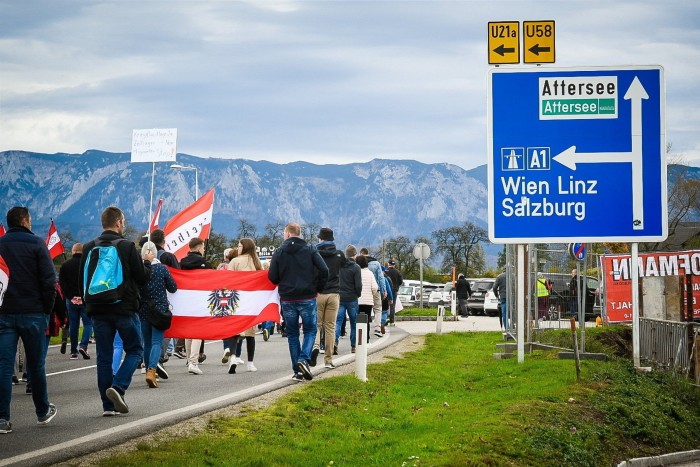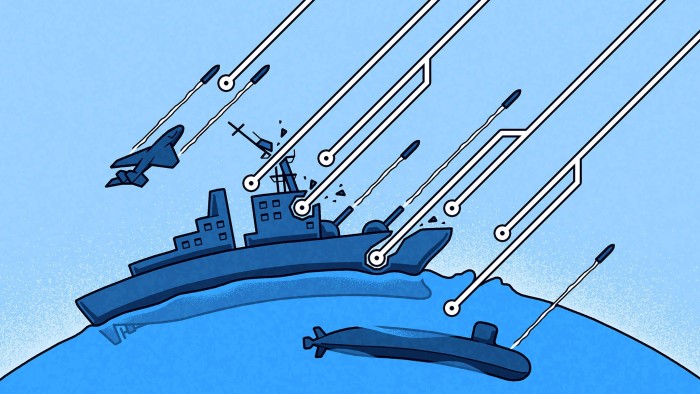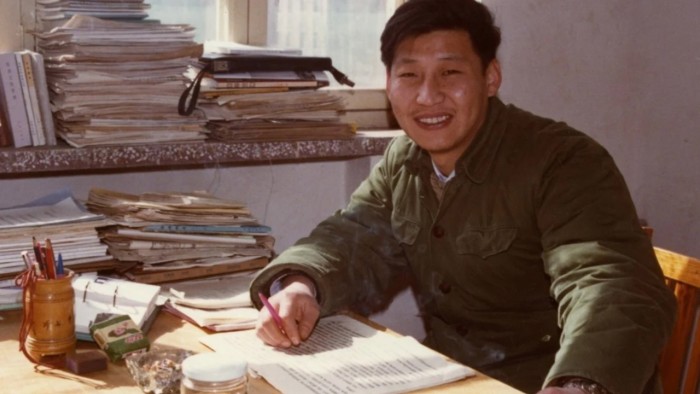Austrian chancellor says EU asylum rules are no longer fit for purpose

Unlock the Editor’s Digest for free
Roula Khalaf, Editor of the FT, selects her favourite stories in this weekly newsletter.
The EU needs to overhaul its asylum rules which are no longer fit for purpose and have helped fan the flames of the anti-immigrant far right, Austria’s new chancellor has said.
Christian Stocker, leader of the centre-right People’s party (ÖVP), told the Financial Times that his three-way coalition aims to restore “stability” and “contentment” in a nation still reeling from the historic victory of the hard-right Freedom party (FPÖ) in parliamentary elections last year.
Stocker said Austria is one of a “growing group of countries that’s actually dealing with this [EU asylum reform] question very in-depth and we all agree that the laws that we have now no longer correspond to their original intention.”
He added: “We need to go back to the roots of what this law means here so that it can apply to those who need it.”
Stocker’s government has moved swiftly to address public concerns about immigration, curbing the right of refugees to bring in their children and close family members.
Austria claims EU rules on family reunification have triggered a youth crime wave and left schools unable to cope with an influx of non-German speaking children.
But human rights campaigners say the government is exaggerating the scale of the problem and that it has no grounds to call a public order emergency that would allow it to derogate from EU asylum law.
Stocker denied that he was simply adopting a policy of the anti-immigrant FPÖ, saying the curbs bore his party’s “signature” and enjoyed the support of the other coalition members.
In a separate interview, Beate Meinl-Reisinger, Austria’s foreign minister and leader of the liberal NEOS party, said there is a “clear need to find a new legal framework” in Europe for refugees, for instance working together on having agreements with countries of origin.
“EU partners have to wake up and see what the situation is like . . . we have to find a solution,” she said.
Stocker, 65, was heavily criticised for trying to form a government with the far-right after initially failing to strike a deal with the other centrist parties. During the election campaign he denounced the FPÖ’s hardline leader Herbert Kickl as a threat to democracy and national security.
An unflashy conservative who spent 35 years as local politician in the northeastern town of Wiener Neustadt, Stocker said he “understands” the criticism.
He had hoped Kickl could “reinvent himself” in coalition negotiations. However, “the horizon reduced with every conversation that we had” and it became apparent he was “more interested in destruction without actually improving any of the things that may have been wrong”.
Kickl, a conspiracy theorist and anti-vaccine campaigner, has steered his party in a more extreme direction. It still came first in last September’s election, winning 29 per cent of the vote as voters turned against the mainstream parties.
The FPÖ has served government three times with the centre-right, but it has never been in the lead position holding the office of chancellor. Many Austrians believe that will become inevitable if Stocker’s coalition is not perceived to be addressing voters’ concerns.
“This might be our last chance,” said one senior Stocker ally.
Stocker leads Austria’s first three-way coalition. In Germany, discontent with a dysfunctional three-party government propelled the far-right to an unprecedented second place in parliamentary elections in January.
The Austrian leader rejects any comparison, saying his coalition is less ideologically diverse.
“We’re also taking a different approach because in our government programme we have made sure that there’s visibility and the individual handwriting, if you will, of each of the three parties. We didn’t negotiate this down to the tiniest common denominator that nobody really agreed with . . . but we left room for everything.”
For the centre-left, there are rent controls and a levy on bank profits, for the liberals there are public sector reforms and for Stocker’s party a tougher line on security and migration.

The government also has to contend with a three-year long recession and a deficit of 4.7 per cent of GDP, one of the highest in the Eurozone. It has embarked on a fiscal adjustment of €6bn this year, mostly through spending cuts.
Stocker did not think fiscal pressures and weak growth would play into the FPÖ’s hands, adding Austria had faced similar economic problems before. The key, he said, was restoring optimism.
“What we need to do is raise people’s confidence again, because then consumption will come back, and with that, investment will come.”
Despite his bruising coalition talks with Kickl, Stocker disagrees with the idea, still prevalent in Germany and other European countries, that mainstream parties should construct a “firewall” around far-right or nationalist conservative parties and refuse to work with them.
Each country must handle it in its own way, Stocker said, pointing out that the FPÖ is included in coalition governments in five of Austria’s nine states.
“That sort of firewall rhetoric is not something that we consider useful, because we think it’s not about the wall, it’s about putting out the actual fire that’s there.”



